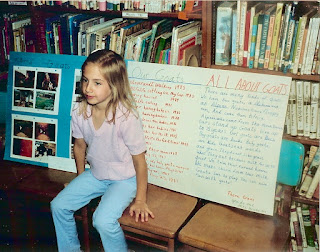Tell Me Why
If a two-year-old’s favorite word is “No,” a three-year-old’s is surely “Why?” Put your shoes on. Why? Eat your broccoli. Why? Let’s go to Grandma’s. Why? Toddlers have limited knowledge of the world but they have a great curiosity to know more. People who want to expand their knowledge never stop asking, “Why?”
Ben Franklin lived for eighty-four years as a three-year-old. He never stopped asking, “Why?” Having only about two years of formal schooling before his father set him up in an apprenticeship, the tediousness of his tasks could have squashed his desire to learn but Ben used it as an opportunity. He became a vegetarian so that he could save on the cost of meat. With the money he saved, he bought books.
Reading books wasn’t enough for the teenage Ben; he wanted to master the ideas within. So, after reading a passage, he put the book away and tried to write out as much as he could remember. A few days later, he’d again recall what he had read. As he gained more knowledge, he summarized the main ideas and made connections to other information. He mastered an idea and added to his understanding always asking, “Why?”
We all know how Ben fared with his learning process. Writer, printer, political philosopher, politician, postmaster, scientist, inventor, humorist, statesman, and diplomat, Ben’s thirst for knowledge served him well. How can we, like Ben, remain curious about learning? Continue to ask why — and how and when and where and who and what. Extend your learning by remaining curious.
We like to think that experts have all the answers in whatever field they pursue, but true experts continue to gather and sift knowledge to extend learning. Examine the work of any great artist or musician. Note how they developed and extended their skills over time. Ulrich Boser, in his book, Learn Better, writes, “Learning — especially richer forms of learning — is a type of knowledge extension, a matter of expanding an area of expertise…” Who would want a surgeon who only knew what he learned in medical school? Learning is an ongoing and enriching process.
Extended learning goes beyond gathering knowledge. A perpetual learner gathers information, summarizes what is learned in meaningful and memorable terms, makes connections to other ideas and personal experience, applies it in concrete experience, revises conclusions, shares it with others, argues about it with other experts, and repeats the whole process continually. Boser defines learning as “a form of doing.” We don’t “get” learning, we “do” learning. A true learner asks questions and seeks answers over and over again to expand and enrich his/her life.
Ben Franklin never stopped learning. At age 81, he, a former Royalist, signed the American Constitution. At 83, he, a former slave owner, advocated for the abolition of slavery. Ben’s curiosity enriched his life and ours. Remain curious. Do learning. Enjoy life. Ask, “Why?”
(For more information, read Learn Better: Mastering the Skills for Success in Life, Business, and School, or, How to Become an Expert in Just About Anything by Ulrich Boser.)

